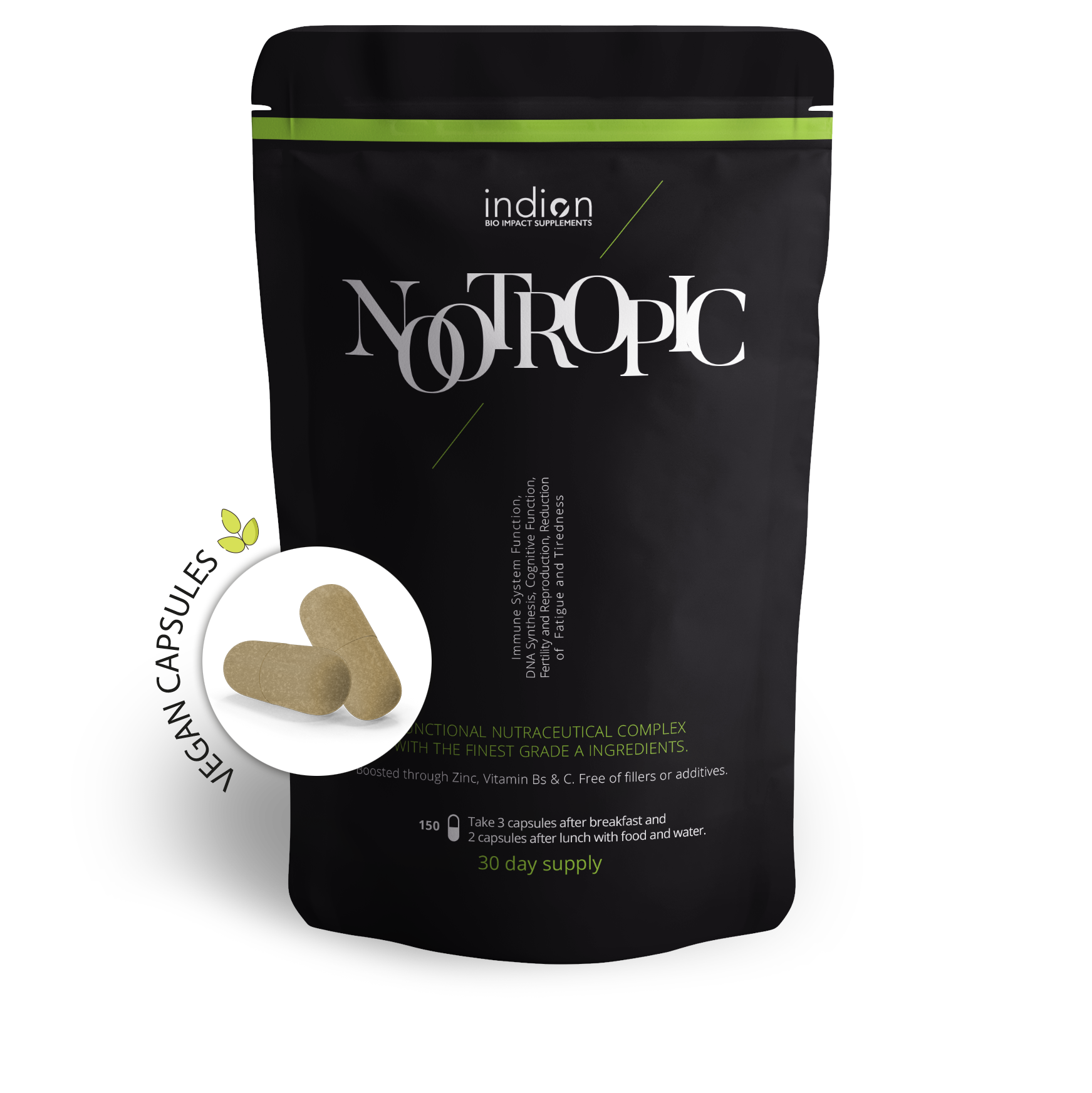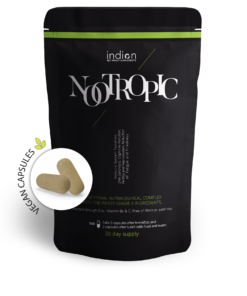Do you struggle to remember names, faces, or where you put your keys? If so, you’re not alone. Memory problems are common, but there are ways to improve your memory. In this blog post, we’ll share 10 natural ways to improve your memory. These tips can help whether you’re trying to boost your memory for school or work, or just want to keep your mind sharp as you age. So if you’re looking for ways to remember more of what life throws your way, read on!
Brain Health
Brain health is an important part of overall physical and mental well-being. It affects our ability to think, learn, remember and respond to the world around us.
To protect our brains and maintain good brain health, there are several steps we can take such as getting enough sleep, exercising regularly, eating a balanced diet and engaging in activities that stimulate the mind.
Also, staying socially active with friends or family can help keep your mind sharp by providing new experiences and learning opportunities.
Taking steps towards better brain health today will help ensure you stay mentally agile for years to come!
NOOTROPIC BLEND
Mental peak performance on demand
The NOOTROPIC BLEND is a complex that helps you to get "in the zone", by boosting concentration, attentiveness, and responsiveness through the utilization of some of the most powerful nootropic ingredients available.
- Mind booster for more creativity
- Promotes concentration and focus
- For sustained performance
- Antioxidants protect the brain
- 2 capsules daily, 30 minutes before work, competition, exam or training
What is memory?
Memory is an essential part of life, allowing us to learn and recall information so we can make informed decisions. We all want to be able to remember more, but the truth is that memory isn’t something you are born with—it’s something you must train and develop over time.
There are many ways to do this, from simple lifestyle changes like getting enough sleep or exercising regularly, to activities specifically designed for improving your recall skills. With dedication and practice, anyone can improve their memory capabilities and enjoy the benefits of improved mental clarity.
Memory and cognitive function
Our brains health can be negatively impacted by a combination of habits and external factors. Poor memory and loss of working memory are two of the main concerns that can arise from an unhealthy brain.
Too much screen time, alcohol consumption, lack of sleep, inadequate nutrition, smoking, as well as exposure to air pollution, have all been linked to reduced mental health outcomes in various individuals.
To avoid memory loss or deterioration in memory functions and increase overall wellness, it is important to be mindful of the habits we engage in throughout our life; each choice we make has the power to either benefit or harm our brain.
Developing healthy habits like sufficient amount of sleep and nutritious eating should help us protect our memory abilities and maintain a healthy brain for years to come.
Cognitive function and cognitive decline
Cognitive decline is a real phenomenon and not just something reserved for the elderly. It involves a decrease in our mental abilities, such as concentration, reasoning, problem-solving, and memory, which can affect our overall quality of life and ability to function.
Cognitive function represents those mental abilities that we use every day; they are one part of our cognitive performance. When we experience cognitive decline, it can disrupt how effectively these functions are performed – such as causing issues with remembering names or details, learning new information and skills, focusing on tasks at hand, or making decisions.
Of course, as we age our cognitive function will naturally decrease due to physiological changes in the brain; however taking steps to protect your cognition – like regularly challenging yourself mentally with crossword puzzles or reading fiction – can help slow those declines in old age.
10 top tips to follow to protect brain health and avoid cognitive decline
Sleep more and better
Getting enough quality sleep is essential for brain health
When we are asleep, our brain produces hormones and chemicals that help us be more alert, think more clearly and feel emotionally balanced during the day; this also helps to regulate our body’s other functions.
However, if we don’t get enough sleep or good quality sleep, these brain hormones and chemicals become imbalanced, which can lead to fatigue, brain fog and lack of focus, as well as impact our overall wellness both mentally and physically.
Developing a healthy bedtime routine like going to bed at the same time every night, avoiding screens before bed and moderating caffeine intake in the afternoon can really help improve the quality of your sleep.
LISTEN TO YOUR BODY– if you find yourself feeling overly sleepy during the day or a few nights in a row it’s definitely time for some much needed rest!
Eat nutritious whole foods
Eating a healthy diet of whole foods can have an immensely positive effect on the health of your brain. What makes these select foods so important is the natural balance of high-quality protein, healthy fats and complex carbohydrates they provide, which can support healthy brain structure and efficient neurological functions.
In addition to providing nourishment for healthy brains, many studies suggest that omega 3 fatty acids, commonly found in certain fish and flaxseed oil, also support healthy cognitive development as well as emotional regulation due to their high content of healthy unsaturated fatty acids.
Eating nutritious whole foods can help ensure that you consume the necessary vitamins and minerals needed for efficient neurological process so your brain can stay healthy and keep up with all of its hard work!
Drink enough Water
Staying hydrated is important for keeping your body functioning optimally. By drinking water consistently throughout the day, you can make sure that you have adequate water hydration and reap all the benefits it provides.
Keeping your brain sufficiently hydrated has a host of advantages including improved memory storage, greater concentration, faster reaction times and better problem-solving skills.
Studies have shown that mild dehydration can drastically impair mental performance by making you think more slowly and less accurately.
So make sure to drink enough water throughout the day to give your brain the water it needs in order to stay sharp!
Exercise regularly
A growing body of research suggests that exercise can not only improve physical health, but also mental and cognitive health, specifically brain health.
It can help reduce the risk of certain mental illnesses such as dementia and depression, while improving concentration and memory.
Exercise releases key hormones in the brain such as dopamine and serotonin which are associated with enhanced well-being and better moods.
It supports the development of new nerve cells in parts of your brain which are important for memory, decision making and problem solving.
So next time you’re considering a quick workout or some physical activity, don’t forget about the positive effects it can have on your brain health.
Meditate and train your brain
Meditating regularly can have some very positive effects on the brain. Research shows that meditation increases grey matter in areas of the brain associated with working memory, introspection, and empathy, meaning that regular practice can result in improved self-awareness and understanding.
In addition, meditation helps to reduce stress responses and improve overall neuroplasticity which promotes the ability to mentally adapt and respond with more creative solutions.
Ultimately, regular meditation can be an effective way to train your brain for enhanced mental health and clarity of thought.
There are many different types of meditation that can be practiced, especially by beginners. Some common forms of meditation include mindfulness meditation, guided meditation, and Transcendental Meditation.
Mindfulness
Mindfulness meditation is a form of meditation that can be practiced anywhere at any time. It involves focusing on the present moment and being aware of your thoughts and feelings without judgment or attachment.
Guided Meditation
Guided meditation is a form of meditation that involves being guided through the process by an instructor or audio recording. It can be used to increase relaxation and reduce stress while increasing focus and clarity of thought.
Transcendental Meditation
Transcendental Meditation (TM) is a type of meditation that involves using mantra-style phrases in order to quiet the mind and enhance relaxation. TM has been proven through research to reduce stress, improve memory, increase creativity, and promote overall wellbeing.
Binaural beats
Binaural beats are a type of auditory stimulation that can help enhance meditation practices.
They involve playing two slightly different frequencies of sound in each ear to create a pulsating sensation which is thought to synchronize with and alter brain waves, helping the user reach deeper levels of relaxation and meditation.
Binaural beats have been used for many years as an aid to focus concentration, reduce stress, improve sleep quality, and increase creativity.
In addition to these benefits, research has also shown that binaural beats can help promote better mental performance by increasing alertness and improving cognitive functioning such as memory recall and problem-solving skills.
With regular use, binaural beats may be able to provide users with improved mental clarity and enhanced overall wellbeing.
No matter which type of meditation you choose to practice, regular sessions can help train your brain and improve your mental health. Taking time out of each day to meditate can be an effective way to reduce stress levels and foster mental clarity.
All in all, maintaining good brain health is essential for optimal mental performance and wellbeing. Though it may seem like a daunting task, there are many simple steps you can take to keep your brain healthy and fit.
Avoid smoking
Smoking has been proven to be incredibly detrimental to human health, especially when it comes to the brain. Studies have revealed that smoking can lead to the shrinking of important parts of your brain, which can influence your memory and concentration skills.
Furthermore, if someone smokes for an extended period of time, they are more likely to suffer from age-related diseases like Alzheimer’s and dementia at a much earlier age compared to non-smokers.
There is also research showing smokers are three times more likely to experience stroke than people who don’t smoke, which can cause even more severe cognitive issues.
Do not drink alcohol excessively
Alcohol has toxic effects on the brain, both short-term and long-term. In the short-term, drinking alcohol impairs a person’s judgement, coordination and concentration which can lead to car accidents, physical injuries and impaired decision making.
Long-term effects of heavy drinking can include increased risk of stroke, dementia & liver disease as well as damage to certain areas of the brain that can lead to changes in mood and behavior.
Alcohol has also been found to interfere with neuron activity in the hippocampus resulting in memory problems.
Alcohol consumption can have a major impact on the hormones and bodyfat of an individual. When drinking large amounts of alcohol over long periods of time, the body begins to produce more cortisol, also known as the stress hormone.
Cortisol is responsible for releasing sugars into the bloodstream so that energy can be utilized quickly under stressful situations, however when produced in excess it can have a negative impact on brain health.
Additionally, alcohol has been linked to an increase in body fat which can lead to inflammation and a decrease in blood flow throughout the body – including the brain.
For those who struggle with addiction, it is important to realize that the risks associated with regular and excessive alcohol consumption are very real and should be taken seriously.
Stay clear of refined carbohydrates and sugars
The effects of overly-refined carbohydrates and sugars on the brain are concerning. These processed foods can impair cognitive abilities, making it more difficult to work efficiently.
Studies have found links between high sugar intake and a decrease in memory recall, lower attention spans, and weakened executive functioning.
Unfortunately, sugary beverages or snacks appear to offer only a temporary boost in energy before causing an eventual crash, sapping not only the physical but also mental energy stored by the body.
Additionally, because sugar is quickly used up by the body, after eating these types of food people will often feel more hungry than they expect because their bodies search for more of this type of fuel.
Therefore increasing consumption of these sorts of foods can contribute to weight gain over time as well.
To prevent such detrimental effects on one’s brain health it would be wise to reduce refined carbohydrates and sugars in one’s diet and make sure that meals are balanced with proteins and fiber-rich produce.
Avoid air pollution
Air pollution has a profound effect on our brains. It can trigger neurological diseases, including Alzheimer’s and Parkinson’s Disease.
Furthermore, air pollutants such as particulate matter, sulfur dioxide, and nitrogen dioxide have been found to have a negative effect on cognitive function.
Small particles can enter the cardiovascular system via the bloodstream and cause inflammation in the brain that is associated with reduced memory capacity and lower intelligence.
Research has also linked poor air quality to increased levels of depression, anxiety, and ADHD.
The effects are especially pronounced for children whose brains are still developing.
In extreme cases, air pollution can even lead to irreversible damage for young brains leading to severe learning disabilities or permanent impairments in cognition.
Taking action now by cutting vehicle emissions and investing in clean energy sources is critical for protecting our delicate neurological health.
Use supplements to enhance your brain health and increase cognitive performance
Supplements for brain health can provide substantial overall bodily and cognitive health benefits. Commonly recommended supplements to support brain health include omega-3 fatty acids, acetyl-L-carnitine, magnesium, curcumin, and ginkgo biloba.
Omega-3
Omega-3 fatty acids are essential fats that help increase circulation to the brain which encourages memory retention and improves other aspects of cognition.
Omega-3 fatty acids are an essential type of fat that can have a profound effect on the health of our brains. They are particularly important for proper brain development in children, and may also provide benefits for adults, including improved memory retention, cognitive function, and mood. Omega-3s can be found naturally in certain fish such as salmon, and can also be obtained from dietary supplements.
Acetyl-L-Carnitine
Acetyl-L-carnitine has the ability to cross the blood–brain barrier providing numerous positive effects such as improved learning ability and longer focus times.
Magnesium is an important nutrient in many processes in cells throughout your body including those in the complex network of neurons within your brain, making it an important factor for brain function.
Curcumin
Curcumin contains a tremendous antioxidant capacity that helps protect the delicate neural pathways from long term degenerative damage.
Curcumin is derived from the turmeric plant and has been used for centuries in traditional Chinese and Indian medicine. Curcumin contains a tremendous antioxidant capacity that helps protect the delicate neural pathways from long term degenerative damage.
Gingko Biloba
Lastly Ginkgo Biloba is a popular herbal remedy which improves memory formation among other cognitive benefits like increased alertness and reaction time.
By researching various combinations of these effective supplements individuals can start adding nutritional support to improve their current overall mental wellbeing while taking preventive measures against future decline.
Here is a list of other brain enhancing supplements. Supplements of this order are usually called nootropics.
- Bacopa Monnieri – Supports neurological function and cognitive performance
- Lion’s Mane Mushroom – Enhances focus, memory, creativity and motivation
- Rhodiola Rosea – Improves cognitive performance under stress
- Ashwagandha – Decreases anxiety while providing neuroprotective benefits
- Ginkgo Biloba – Increase concentration and alertness
- Phosphatidylserine – Supports healthy brain cell communicationL–Theanine – Reduces mental stress and improves cognition levels.
- Huperzine A – works as an acetylcholineesterase inhibitor can improve processing speed and power
- Vinpocetine–Boosts cerebral blood flow for better oxygenation of neurons
- Alpha Lipoic Acid–Protects against free radical damage to neurons
Conclusion
It is clear that there are many ways to enhance our brain health and cognitive performance. Air pollution has a negative effect on neural pathways, so it’s important to take action now against emissions in order to protect our neurological wellbeing.
Supplementing with omega-3 fatty acids, acetyl-L-carnitine, magnesium, curcumin, ginkgo biloba and other nootropics like bacopa monnieri can provide numerous positive effects such as improved learning ability and longer focus times.
Research various combinations of these supplements for the best results in improving your mental wellbeing while taking preventive measures against future decline.
Taking control of your own brain health today will help ensure you have maximum cognitive function tomorrow!
Make sure to follow along with the provided information to improve your memory and brain functions.
Nutritional supplements
€59,90
You might also be interested in:
Nootropic Blend
Nootropics for Motivation
Ever felt like you’re stuck in a rut, unable to muster the energy or motivation [...]
Nootropic Blend
Nootropic Blend: best focus supplement for gaming
Discover the best nootropic blend for gaming! Our article explores the benefits, ingredients and factors [...]
Nootropic Blend
Can Smart Drugs Improve Cognitive Function?
This article explores the potential benefits and drawbacks of using smart drugs for cognitive enhancement. [...]
Nootropic Blend
Neuroenhancement: brain doping?
Many people are looking for ways to increase their cognitive abilities and reach their full [...]
Nootropic Blend
Combat lack of concentration
Discover now the natural formula for more focus and productivity in everyday life. Increase concentration [...]
Nootropic Blend
Clearing the Brain Fog: How Nootropics can Enhance Cognitive Function and Boost Productivity
Discover how nootropics can help you tackle brain fog. Learn about the best types of [...]
Nootropic Blend
Navigating the World of Brain Boosting Nootropics: From Racetams to Rhodiola
Unlock your cognitive potential with brain-boosting nootropics. Learn about different types, benefits, and safe use [...]
Nootropic Blend
How ashwagandha effect muscles
Discover the effects of ashwagandha on muscle health. Learn how this adaptogenic herb can enhance [...]















